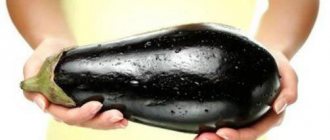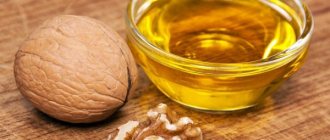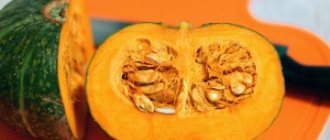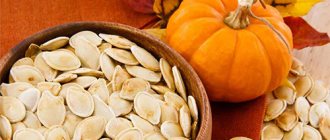Ah, summer! Sun, sea, abundance of fruits and vegetables, juicy melons and watermelons... When breastfeeding, melons can provide invaluable benefits to both mother and child. The main thing is to choose the right tasty berry. Otherwise, there is a risk of poisoning. It is also necessary to properly introduce watermelons into the diet. Otherwise, the child may develop allergies or problems with the gastrointestinal tract.
Is it worth eating
So, can you have watermelon while breastfeeding or not? Experts say that this berry is simply necessary. Indeed, during lactation, the consumption of useful components, vitamins and minerals in the female body increases. Stocks of such substances need to be replenished. Watermelon contains a large amount of microelements and vitamins. This product can be used as a diuretic. The main thing is not to abuse it. When introducing a new product into the diet, you should carefully monitor the child’s condition.
The dangers of watermelon while breastfeeding
Despite all the benefits of the berry, it can harm the health of the child and the woman herself. Only natural, naturally ripened fruits bring benefits, and berries ripened under the influence of nitrates are dangerous. When consuming a low-quality product, you may experience the following reactions:
- disorders in the gastrointestinal tract;
- acute allergic reactions;
- vomit;
- increase in body temperature.
When the berry is consumed by the mother, the benefits and harm are fully transmitted to the child, the symptoms of poisoning appear acutely, so do not underestimate its danger. Prolonged diarrhea and vomiting leads to water imbalance. It provokes dehydration, which in children under 1 year of age can only be treated in a hospital.
Watermelon is not on the list of prohibited foods for breastfeeding, so it can be consumed, but with extreme caution. You should not eat it with white or rye bread, as this composition provokes flatulence and colic in children.
List of contraindications for use:
- predisposition to allergic reactions in a newborn;
- diabetes;
- stones in the organs of the urinary system;
- pancreatic lesions.
If the child experiences a reaction when the mother eats watermelon for the first time, tasting should be postponed for at least 1 month. You can contact an allergist and get tested.
Attention! Watermelon can be introduced into a woman’s diet during lactation after the child reaches the age of 4 months.
What's the benefit
So, what are the benefits of watermelons during breastfeeding? They allow you to replenish magnesium and calcium reserves. These substances help the mother restore her body after prolonged gestation and childbirth. The sweet pulp also contains vitamin C. This substance helps the female body strengthen the functioning of the immune system, as well as withstand the onslaught of all kinds of colds.
Don't forget that watermelons are rich in iron. This is one of the most important components. During lactation, the need for it increases several times. After all, iron helps the body fight anemia.
Useful acids
The berry also contains folic acid. This component is necessary for the creation and maintenance of new cells in a healthy state, so its presence is especially important during periods of rapid development of the body, especially in early childhood. So, if you wish, feel free to eat watermelons: even if you are breastfeeding, they will be useful for your baby. As for the mother, folic acid gives her a beautiful and even complexion, as well as youth.
Large berries contain another important component that allows you to cleanse the body of harmful substances, including toxins. This is panthenolic acid. The substance can normalize sleep. This is important not only for the mother, but also for the child.
In general, watermelons are very useful for breastfeeding. After all, they allow you to normalize the water balance in the mother’s body. These berries help remove swelling that remains after childbirth, remove excess fluid, increase the frequency of urination, and also contribute to better production of breast milk.
Is it possible to eat watermelon while breastfeeding? The benefits and harms of watermelon for breastfeeding
When breastfeeding, the amount of minerals and nutrients leaving a woman’s body increases sharply. She, who has not yet recovered from pregnancy, needs an additional source. Watermelon allows you to make up for losses incurred in a matter of days. Experts recommend consuming this berry during lactation; the main thing is not to overdo it, so as not to provoke colic or allergies in the baby.
The benefits of watermelon during breastfeeding
Watermelon pulp contains:
- calcium;
- magnesium
- vitamin C;
- folic acid;
- iron;
- pantothenic acid;
- riboflavin.
Calcium and magnesium help speed up a woman's postpartum recovery process. Magnesium also has a positive effect on your baby’s sleep, helping him to calm down faster and have a good rest. A woman needs calcium to preserve her natural beauty and to produce high-quality milk for her body to feed a newborn. In the first months of breastfeeding, a woman loses up to 5% of the total calcium contained in her body, which affects the condition of the teeth, nails, and bone skeleton.
Vitamin C is necessary to increase the immune system's resistance to infections and helps eliminate nitrates from the body. Ascorbic acid is endowed with antioxidant properties and is involved in most processes occurring in the body. It is necessary for the formation of connective tissue in the baby, strengthens blood vessels, and promotes better absorption of iron.
Folic acid after the birth of a baby remains no less in demand by the female body. With its help, it is possible to increase the amount of milk and influence the growth of the child’s mental abilities. Folic acid has a positive effect on the rate of formation and strengthening of bone tissue, tones the body, adding energy. It affects nerve cells and helps with insomnia. Small children often sleep restlessly; folic acid will not help the situation, but it will significantly improve it.
Breastfeeding mothers often experience anemia. The fastest way to deal with it is iron. During pregnancy and lactation, the female body loses up to 1400 mg of iron. The lack of this element negatively affects the functioning of the immune system, the growth of cells and the body as a whole, and brain activity. Iron stimulates the thyroid gland and improves the condition of the skin. After childbirth, this point can be of no small importance, since the stress experienced by the body does not always pass without a trace.
If a woman and baby do not sleep well, then consuming a product containing pantothenic acid will help make sleep sounder and healthier. Vitamin B5 increases hemoglobin levels and creates protection against anemia in the body. Thanks to it, the central nervous system is protected from harmful substances. Pantothenic acid promotes the absorption of vitamins and nutrients that enter the body with food.
The amount of riboflamin, ascorbic acid and antioxidants determines the degree of the body’s resistance to the appearance of cancer cells and the woman’s preservation of her external data. Regular consumption of a small amount of watermelon has a positive effect on the condition of women's skin; the woman looks fresher and more rested, even despite sleepless nights. But everything is good to use in moderation. There will definitely be no benefit from eating watermelon alone.
Harm from watermelon during breastfeeding
The obvious benefits of eating watermelon do not always exceed the harm that the berry can cause to children and adults. The great danger lies primarily in nitrates. No other berry or vegetable is capable of accumulating them as quickly as watermelon. Being nitrogenous compounds, nitrates are found in the soil and are generally safe. During the process of growth and ripening of watermelon melon, it extracts the maximum amount of nitrogen from the ground, which ultimately affects the quality of the berry. After eating this watermelon, the following are observed:
- digestive problems;
- nausea;
- vomit;
- increased gas formation;
- other signs of poisoning.
An adult will tolerate watermelon poisoning more easily than an infant, therefore, before consuming this product, a nursing mother must make sure of its quality. This can be done directly upon purchase by contacting the laboratory. Naturally, a watermelon seller may have all the necessary documents certifying the quality of the product, but you shouldn’t really trust them, since only 1 watermelon out of a hundred was tested, while the amount of harmful substances in each berry is unequal.
What time to administer
As practice shows, all mothers can drink watermelon while breastfeeding. The main thing is to introduce it correctly into the diet. It is not recommended to start eating melons earlier than three months after the appearance of breast milk. In the first 60 days, the young mother must adhere to a strict diet. This will allow the child to get used to the new diet and learn to perceive the nutritional components received with milk. Starting from 4 months, a woman can diversify her menu.
A new product should be introduced gradually. At the same time, portions should be small. After 5 days, the amount of product can be increased. In this case, it is necessary to carefully monitor the child’s condition. If his stomach hurts or a rash appears, then he should refuse watermelons.
Rules for use during breastfeeding
How to eat watermelon while breastfeeding and is it possible to do it? It is very difficult to give exact answers to these questions. Despite all the benefits of the fruit, it can cause harm, forcing the introduction of certain rules of administration.
The first danger that awaits the mother manifests itself in the form of an allergic reaction in the baby, so you need to try a new product according to the following rules:
- the piece should be small;
- you need to take the pulp located far from the crust;
- eat the product in the morning;
- Do not use as a dessert, eat separately from meals.
After 1 hour, you need to breastfeed the baby and begin observing the reaction that occurs. If redness and rash appear on the body, acquaintance with watermelon should be postponed until the next season. Even minor allergy symptoms are a reason to refuse to eat berries; they are dangerous and can lead to the development of anaphylactic shock and acute dermatitis.
Despite the fact that a product grown under the right conditions is not allergenic, a reaction may occur due to instability of the infant's gastrointestinal tract. The digestive organs are simply not able to respond normally to incoming components. Therefore, it is impossible to answer with certainty the question of whether a nursing mother can eat watermelon.
An increase in body temperature, vomiting, and diarrhea in an infant after drinking breast milk is a reason to seek emergency medical help. The listed symptoms are characteristic of acute food poisoning and are very dangerous for the baby, so you cannot hesitate to respond. You should urgently contact an ambulance, because the symptoms of dehydration increase very quickly; treatment of poisoning at home is unacceptable.
Attention! The reaction time to watermelon is about 2-3 hours after drinking breast milk. During this, the baby must be supervised by adults.
If a newborn has no reaction to eating a new product on the first day, then the answer to the question of whether it is possible to eat watermelon while breastfeeding is positive. A woman can introduce it into her diet; subject to the norms and rules of consumption, the risk to the child is minimal. The daily volume of consumed product should not exceed 300 g. You need to eat watermelon in the morning, so that in case of poor quality of the product, indigestion does not occur at night, because it is more difficult to respond to them in a timely manner. Of course, it is necessary to check each purchased fruit for compliance with quality criteria.
Knowing the benefits of the product, you need to remember that if the standards associated with the volume of consumption are not observed, the risk of adverse reactions increases. Abuse of watermelon provokes frequent urination, which leads to leaching of beneficial substances from the body. The calcium and magnesium contained in the composition are absorbed by the human body only when consumed in acceptable quantities.
You can introduce watermelon into your child's complementary foods after reaching the age of 1 year, without exceeding the daily allowance of 100 g. Early, independent tasting of the product by a child can be dangerous due to the risk of kidney problems and diseases of the digestive system.
Allergy to watermelon
Despite the obvious benefits, watermelon can cause trouble when breastfeeding a newborn. The composition of this berry is unique. However, the product is one of the strongest food allergens. Therefore, watermelons should be consumed with extreme caution.
If the mother has even a slight allergy to this product, it should be abandoned. Signs of such ailment may also appear in the baby. If a child develops diathesis, watermelons should be immediately excluded from the mother’s menu. You can't let the reaction take hold. Otherwise, it will become chronic. It is also important to properly neutralize the consequences.
After some time, you can try the watermelon again. Perhaps the problem arose due to the child’s immature immunity.
Digestive problems
Watermelon should be consumed in limited quantities. Otherwise, slight frustration may occur. You should eat watermelons only after the main meal and little by little. After all, the mother’s stomach may be overloaded. As a result, discomfort, heaviness and increased gas formation may appear.
The child may also experience discomfort. As a result of the mother's excessive consumption of watermelon pulp, the baby may experience colic. It is for this reason that such berries should be eaten in small portions. You can increase the amount of watermelon only in cases where the product does not cause digestive problems.
Possible poisoning
Is it possible to drink watermelon when breastfeeding a newborn in unlimited quantities? Of course not. The main danger of such a berry is that, as a result of the wrong choice, it can cause severe poisoning not only in the mother, but also in the child. Do not forget that watermelons contain a large amount of nitrates. These substances allow fruits to ripen much faster. Both mother and child may suffer after consuming such products. After all, the chemicals are stored in the berries and also easily pass into breast milk. In addition, children's bodies are more susceptible to the effects of certain substances. While a small amount of nitrates may not have any effect on the health and well-being of the mother, even a small amount of it can be dangerous for the child.
Features of consuming watermelon during breastfeeding
After the birth of the child, the pediatrician will advise the woman on foods that can be consumed during lactation from birth. In the future, during monthly visits to the pediatrician, the mother should ask what other foods can be introduced as the child grows older. Below are recommendations for eating watermelon.
In the first month
Despite the fact that there is no ban on eating berries while breastfeeding, it is still better to abstain from them in the first month after giving birth.
Although there is an opinion of some pediatricians, including Dr. Evgeniy Komarovsky, respected by many modern mothers, that if it’s hot August outside, and around, on almost every corner, delicious watermelons are being sold, then you can still please yourself with a small piece .
But only after monitoring the child’s condition and buying the berries at a well-established retail outlet.
In the second month
Pediatricians allow watermelon to be introduced into the diet from the second month of lactation. At this time, the process of milk production and release has already been established, and more enzymes have formed in the child’s digestive tract that are capable of breaking down a larger number of products.
At this time, you can eat berries not every day, but once a week.
At 3 months
If in the first months the child had a negative reaction after the mother ate watermelon, then you can try it again after a while. At 3 months it is allowed to eat watermelon every 2-3 days.
If problems occur again, then drinking watermelon should be postponed for another month.
At 4 months
At 4 months, the baby’s digestive system is already quite well formed. Therefore, mom can try the berry every day. However, monitoring the child’s condition still does not stop.
You will also be interested in learning about the beneficial properties of watermelon rinds, watermelon juice, watermelon oil, and watermelon seeds.
When not to eat watermelon
First of all, you should not eat watermelon while breastfeeding in the first month of lactation. This is very dangerous for a newborn baby. In addition, there are a number of diseases for which the consumption of such food is not allowed. First of all, women suffering from diabetes should avoid watermelons. In principle, such food is prohibited for them.
Also, those who have problems with the excretory system should avoid melons. It could be kidney stones. Watermelons can also aggravate your health if you have pancreatic diseases. Before introducing this product into your diet, you should consult your doctor.
Is it possible to have watermelon while breastfeeding from the very beginning of the season?
Watermelons are a valuable product for nursing mothers, but there is no need to rush into introducing them into the diet. It is not recommended to consume the first, early watermelons that have just appeared on the markets.
Often, early summer varieties of watermelons are grown using nitrates. This can lead to poisoning of both the mother and her baby. Therefore, leave the period of delicacy with watermelons for the end of summer and autumn, although during this period you can buy a dangerous watermelon, but the chances of this are much lower.
Can I eat watermelon while breastfeeding? Quite, you just have to choose it correctly.
First of all, you need to pay attention to what color the fruit is; it should be bright, with light green stripes that alternate with dark green. You can also check a watermelon in a simple way for the presence of nitrates.
You need to cut off a small piece of pulp and place it in a glass of clean water. If after a few minutes the water becomes cloudy and whitish, as if it contains milk, this will indicate the presence of nitrates in the fetus; a nursing mother should refuse to eat such watermelon.
Also, you should not eat unripe pulp near the rind, as this is where nitrates are especially concentrated.
How to avoid trouble
So, watermelons are quite acceptable during breastfeeding, but we should not forget that these fruits can cause poisoning, allergies and other unpleasant phenomena. To avoid this, you need to choose the right product. Do not forget that watermelons ripen only at the beginning of autumn. You should not buy melons in the spring or even in the middle of summer. Such products can be poisoned by nitrates. It is also not recommended to eat unripe watermelons.
Fruits should only be purchased whole, without cracks or cuts. You should also choose those berries that are not lying on the ground, but in special trays. You should not buy watermelons that are sold along the roads.











